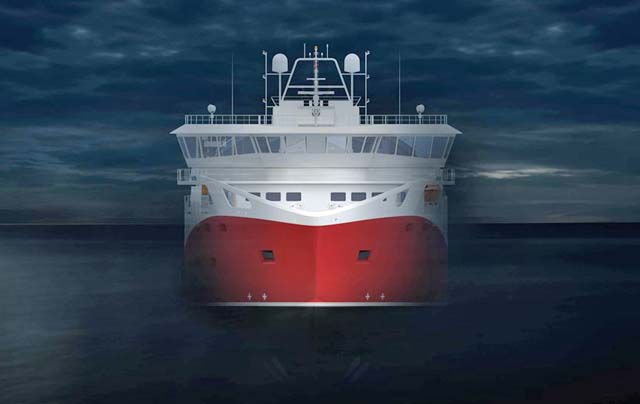Wellboat company North Salmon Service has chosen Norwegian HAV Design, part of HAV Group, as cooperation partner in the development of an ammonia-fuelled wellboat.
North Salmon Service and HAV Design have together applied for and been awarded financial support from Enova to conduct a six-month preliminary project to develop the wellboat.
North Salmon Service MD Arnt Erling Paulsen said: “As wellboat operator we have a strong desire to contribute towards limiting our climate and environmental footprint associated with production of salmon. That is why we want to assess the possibility of developing a wellboat that through use of ammonia as ship fuel may have zero emission potential.”
The vessel will be equipped with a dual-fuel engine capable of sailing with ammonia as fuel. The intention is that the vessel will be outfitted with the most advanced equipment available in order to reduce fuel consumption and CO2 emissions.
Jan Magne Goksøyr, VP sales HAV Design, added: “We will together with North Salmon Service develop a wellboat concept that sails as effectively as possible, with associated reductions in emissions and operating costs.”
HAV Design will design the vessel and optimise it technologically to carry out wellboat operations and at the same time ensure maximum utilisation of green fuels. To achieve this, North Salmon Service and HAV Design will contribute with their respective specialist experiences in operating profiles for ships and operational know-how for wellboats. North Salmon Service operates wellboats for Nova Sea, Salten Aqua and other associated customers, which have sustainable food production as a core value and take a proactive approach to limiting their environmental footprint.
North Salmon Service and HAV Design will together identify technologies and subcontractors that can contribute towards the long-term target of building the ammonia-fuelled wellboat. HAV Design’s sister company HAV Hydrogen could be a potential cooperation partner for the preliminary project.
Ammonia is interesting as a ship fuel because it is easy to compress and store as a liquid, and thus a suitable medium for bunkering on board ships. Further, the maritime industry already has extensive experience with ammonia as cargo and refrigerant. Another advantage is that many ports worldwide are already equipped for ammonia trade, which reduces the need for infrastructure investments.
Goksøyr concluded: “We look forward to collaborating with North Salmon Service to realise their exiting wellboat plans and pave the way for zero emission shipping in the fish farming industry.”



